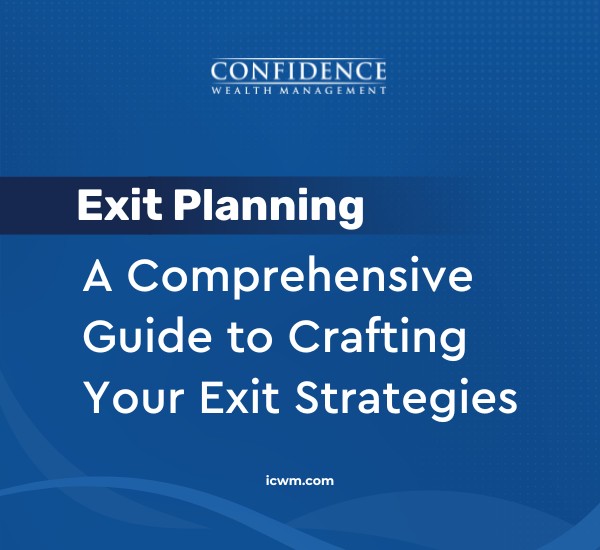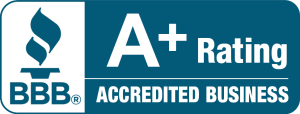We all know that in today’s world college is expensive. How are you supposed to prepare your child to pay for the tuition, books, and living expenses without drowning in debt for decades?
If you’re a business owner, you might not realize that you have unique college planning opportunities.
For example, if you’re in a high tax bracket, you can shift assets or income to your child, who’s often in a lower tax bracket by:
- Gifting them company stock
- Transferring a partnership or S corporation interest to your child
- Arranging a gift-leaseback transaction with your child
- Putting them on the payroll
The common theme in all of these strategies is shifting business assets or income to someone in a lower tax bracket to take advantage of lower tax rates.
So now you know it can be done. What does it take to use these college funding strategies if you’re a
business owner?
Gifting Company Stock
If you plan to sell appreciated company stock to pay for college, you may be able to shift the resulting capital gain into a lower tax bracket by gifting the stock to your child and allowing him or her to sell it. Your child can then use the sale proceeds to pay college expenses.
There may be some tradeoffs, such as:
1. “Kiddie tax” may limit your tax savings, which applies generally to children age 18 and full-time college students under age 24 whose earned income doesn’t exceed one-half if their support.
a. Under the kiddie tax rules, a child’s unearned income over a certain threshold ($2,300 in 2022) is taxed at parent income tax rates.
2. There may be gift tax implications if the stock will be sold for more than the annual gift tax exclusion ($16,000 in 2022 for individual gifts and $30,000 for joint gifts).
3. It may reduce your child’s financial aid award.
a. Under the federal government’s methodology for determining financial aid, child assets are weighed more heavily than parent assets. So most college advisors recommend that your child hold a few assets in his or her name as of the date the financial aid application is completed.
4. It may be difficult to find a market for stock in your closely held business.
a. A pre-arranged sale to another family member might be deemed a sham transaction by the IRS. But if the stock is sold to someone outside your circle of family and friends, your family may end up sharing ownership of the business with a stranger.
Most small business owners would rather sell to someone they know than someone they don’t. Make sure to seek the advice of an attorney or tax advisor when selling to a close family member so the transaction won’t be considered a sham by the IRS.
Transfer a Partnership or S Corporation Interest
If your business is treated as a partnership or S corporation for tax purposes, you may be able to shift income to your child by transferring an interest in the business to him or her.
After you have transferred an interest in the business to your child, they can accumulate distributions of business income (unearned income) to cover college expenses. However, the kiddie tax may limit your tax savings and this strategy might reduce your child’s financial aid award (as described above).
There are many things to keep in mind when transferring interest in your business, such as:
1. The IRS has rules governing who is eligible to be a shareholder in an entity treated as an S corporation for tax purposes.
a. Consult with an attorney or tax advisor to be certain that making your child a shareholder of your S corporation will not jeopardize the corporation’s tax treatment.
2. To be recognized as a partner in a partnership your child must have the capacity to enter into a partnership contract in your state.
a. Generally, they must have reached the age of majority or acted through a duly authorized guardian, conservator, or trustee.
3. There are costs associated with this strategy.
4. An attorney must draft a partnership agreement.
a. Documents and tax returns must be filed. Appraisals must be made. Transfers must be documented and appropriate titling instruments prepared.
b. If you use a trust, trust documents must be drafted.
c. In the case of an S corporation, you will need a corporate attorney to handle the transfer of stock and, if needed, the issuance of non voting shares.
Arrange a Gift-Leaseback Transaction
A gift leaseback is a transaction in which one party gifts property to another party and then leases the
property back.
The discussion here focuses on a parent/business owner using a gift-leaseback arrangement to transfer an asset to a child to reduce the family’s overall federal income tax liability.
In a gift-leaseback transaction, the typical strategy is to give a substantial business asset (e.g., a building, land, equipment) directly to your child or to an irrevocable trust for the benefit of your child.
A trust is often used when parents are uncomfortable gifting a substantial asset directly to their child. You then enter into a fair market lease with your child (or the trust) to lease the asset back. Your child receives income from the lease payments, and you can deduct the lease payments as a business expense.
The main benefit of a gift-leaseback from parent to child is:
- Parents can divert income (in the form of lease payments) from themselves to their child, who is probably in a lower income tax bracket.
- The child can then use this money (and the resulting tax savings) to save for college.
- Assuming the gift-leaseback transaction is structured properly, parents can deduct the lease payments as a business expense.
The main drawback of a gift-leaseback is:
- Child assets are counted more heavily than parent assets for purposes of financial aid and you (the donor) may owe gift tax depending on the value of the asset being gifted to your child.
- If the value of the gift is less than the annual gift tax exclusion amount ($16,000 for individual gifts or $32,000 for joint gifts in 2022), you will avoid federal gift tax.
- If the gift is more than this amount, you may owe gift tax (but any gift tax owed may be offset by your applicable exclusion amount).
Also, keep in mind that the IRS pays close attention to gift-leaseback transactions to determine if such transactions are genuine, that is, based on prevailing market values and rental rates. This is especially true for transactions between related parties like parent and child.
This means that a qualified independent appraiser should be used to determine both the fair market value of the asset being gifted and what a fair market rental should be for that asset. In addition, there should be a written lease agreement with standard terms for that type of property.
If you give the asset to a trust instead of directly to your child, the trustee of the trust should be independent of you and other family members. Parents should also avoid naming their attorney or accountant as the trustee. Preferably, the trustee should be completely independent (for example, a bank or an independent fiduciary).
And there are some tax consequences to keep in mind. As mentioned, if the gift-leaseback is structured properly, the parent can fully deduct the lease payments as an ordinary and necessary business expense (assuming that the leased asset is used in the parent’s trade or business).
The child must report the lease payments as income, but depending on the asset acquired, he or she may be able to claim depreciation deductions concerning the asset and offset some of the lease income.
Finally, as noted previously gift tax may be due depending on the value of the asset being gifted.
Put Your Child on the Company Payroll
The most straightforward option is you may be able to shift income into a lower tax bracket by putting your child on your company’s payroll. Your child can work in the family business, receive a weekly paycheck, and accumulate money for college.
Check the child labor laws in your state to determine at what age and for how many hours your child may legally work. Also beware that if you pay your child more than a reasonable amount of compensation, the IRS may deem the excess a gift.
This strategy has several strengths:
- The kiddie tax does not apply because this income is considered earned income rather than unearned.
- The gift tax does not apply because your child is earning his or her income.
- Your child will be eligible to open an IRA because he or she will have earned income.
- A child under age 18 who works for their parents in a trade or business will not owe Social Security or Medicare taxes if the trade or business is a sole proprietorship or a partnership in which each partner is a parent of the child.
- By working in the family business, your child gains practical work experience and may learn some transferable skills.
This strategy isn’t perfect, though.
As discussed above, if your child is seeking financial aid, this strategy could reduce his or her award because child assets are counted more heavily than parent assets in the federal government’s financial
aid formula.
If your child has substantial savings from working at the family business, one option is to have your child open an IRA, which is not counted as an asset for financial aid purposes by either the federal government or colleges. Withdrawals from an IRA that are used for college expenses aren’t subject to the early distribution penalty.
Conclusion
College is expensive. It’s smart to create a plan that plays to your strengths so you can pay for it
with ease.
Any of these options can work. It depends on your unique situation. As experienced financial professionals, we help clients like you figure out the best college funding plan so that when their child is ready they can send them off with peace of mind.
Please connect with us and let us help you plan for your dream retirement. We would be delighted to go on the journey with you.










